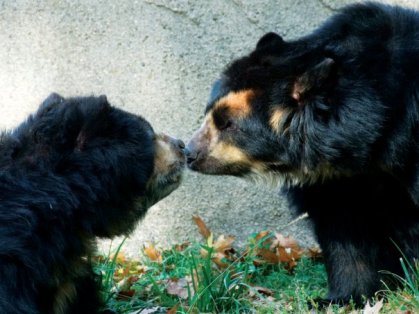New Jersey, the most densely populated state in the nation, might not be the first place you think of for black bears. However, the Garden State boasts a robust and expanding black bear population, particularly in its northwestern counties. Let’s delve into the numbers and how New Jersey protects these impressive creatures.
New Jersey’s Thriving Black Bears: Population and Conservation Efforts
The New Jersey Department of Environmental Protection (NJDEP) estimates a black bear population exceeding 3,000 individuals. This concentrated population is primarily found in the state’s northwestern region, but bear sightings are becoming increasingly common throughout New Jersey.
Safeguarding New Jersey’s Black Bears
The NJDEP works diligently to manage the state’s black bear population and ensure a healthy future for these animals. Key conservation strategies include:
- Comprehensive Management Plan: Employing a science-based approach to balance bear population goals and minimize human-bear conflicts.
- Public Education: Informing residents about bear behavior, safety practices, and ways to reduce potential attractants.
- Population Monitoring: Tracking bear numbers, distribution, and trends through research and surveys.
- Limited Hunting Seasons: Implementing regulated hunts in specific areas to help manage population density.
- Non-Lethal Management: Using techniques to deter bears from residential areas and prioritizing non-lethal responses when conflicts arise.
How Can New Jersey Residents Help?
People living in bear-inhabited areas of New Jersey can contribute significantly to conservation efforts by:
- Securing Food Sources: Using bear-resistant garbage containers and avoiding leaving pet food or bird feeders accessible.
- Respecting Wild Spaces: Never approach bears and observe them from a safe distance.
- Being Bear Aware: Educate yourself about black bear behavior and how to coexist responsibly.
- Reporting Sightings: Report bear sightings to the NJDEP to help track population distribution.
- Supporting Bear-Focused Organizations: Consider donating to or volunteering with groups dedicated to black bear conservation in New Jersey.
A New Jersey Conservation Success
Despite challenges arising from its dense human population, New Jersey has effectively managed a thriving black bear population. Through continued collaboration between the NJDEP and the public, the future of black bears in the Garden State looks promising.


Follow Us!